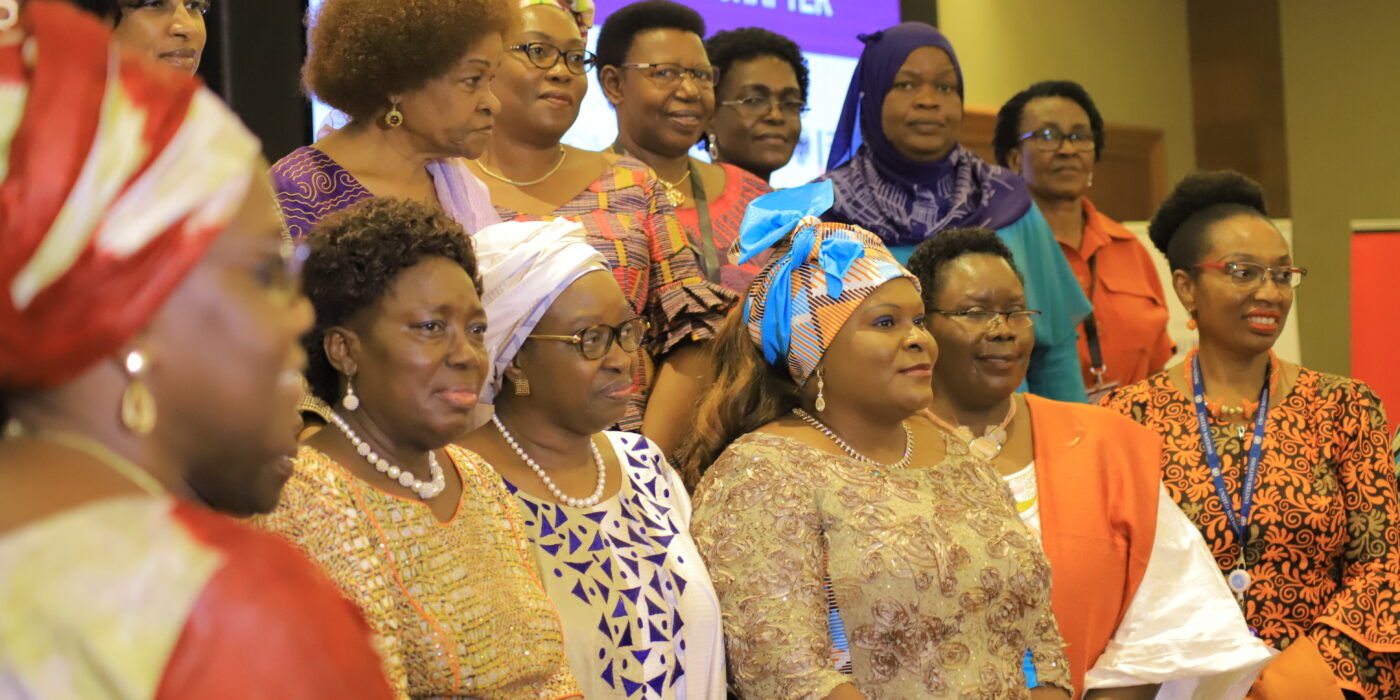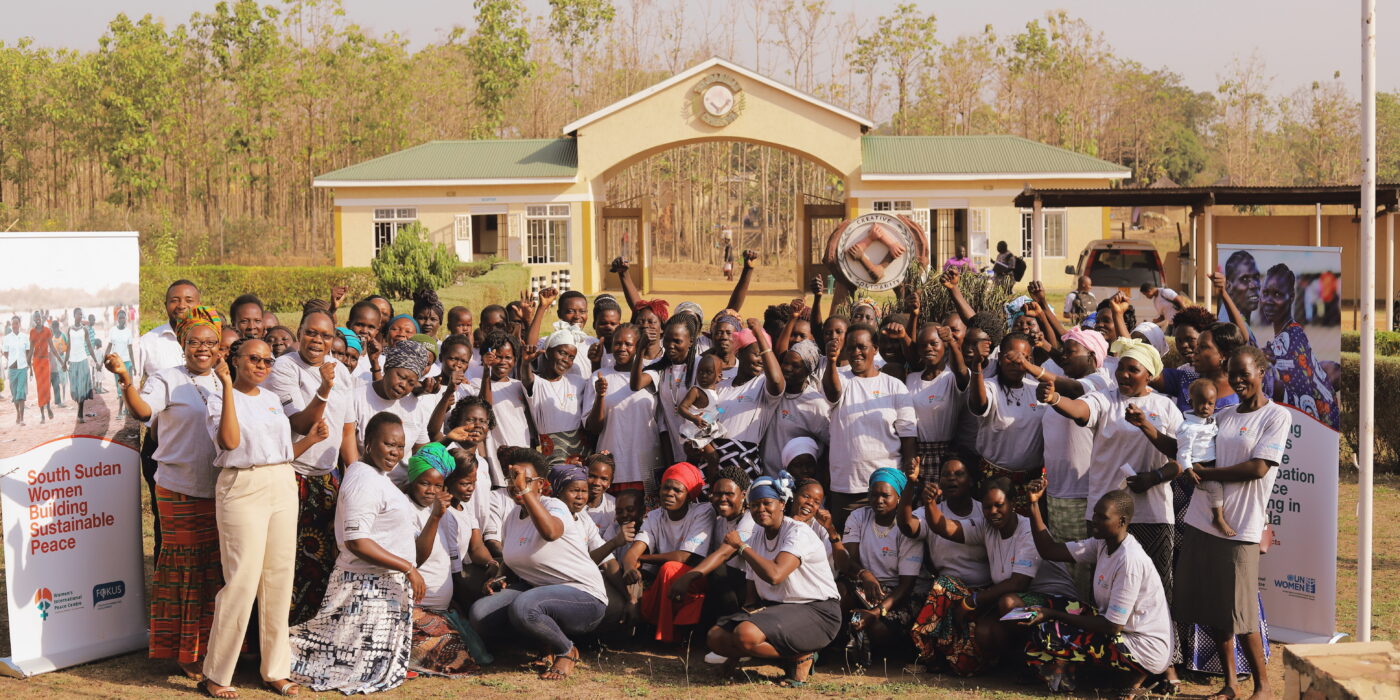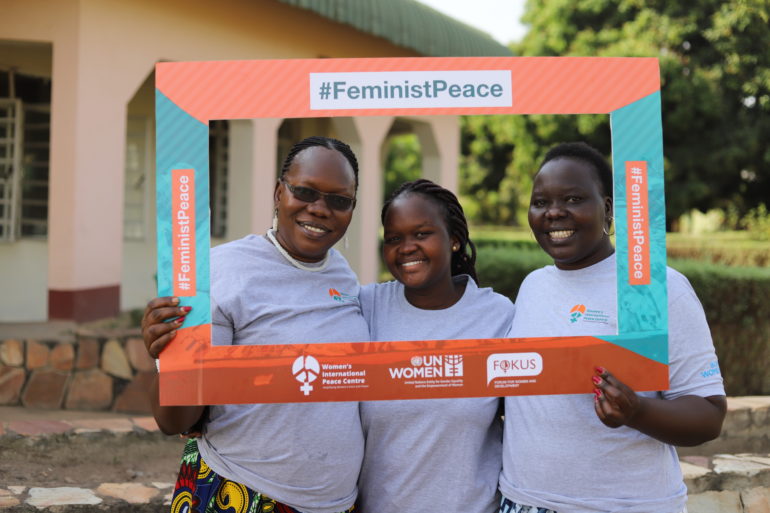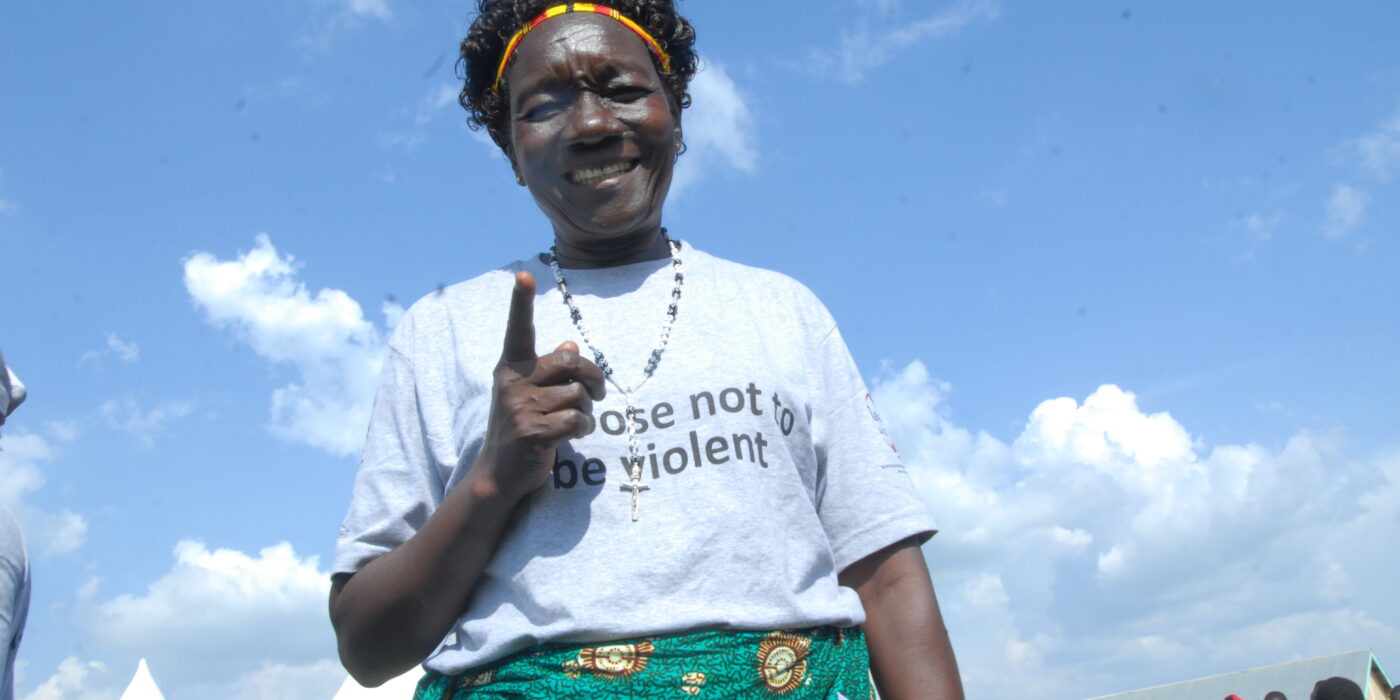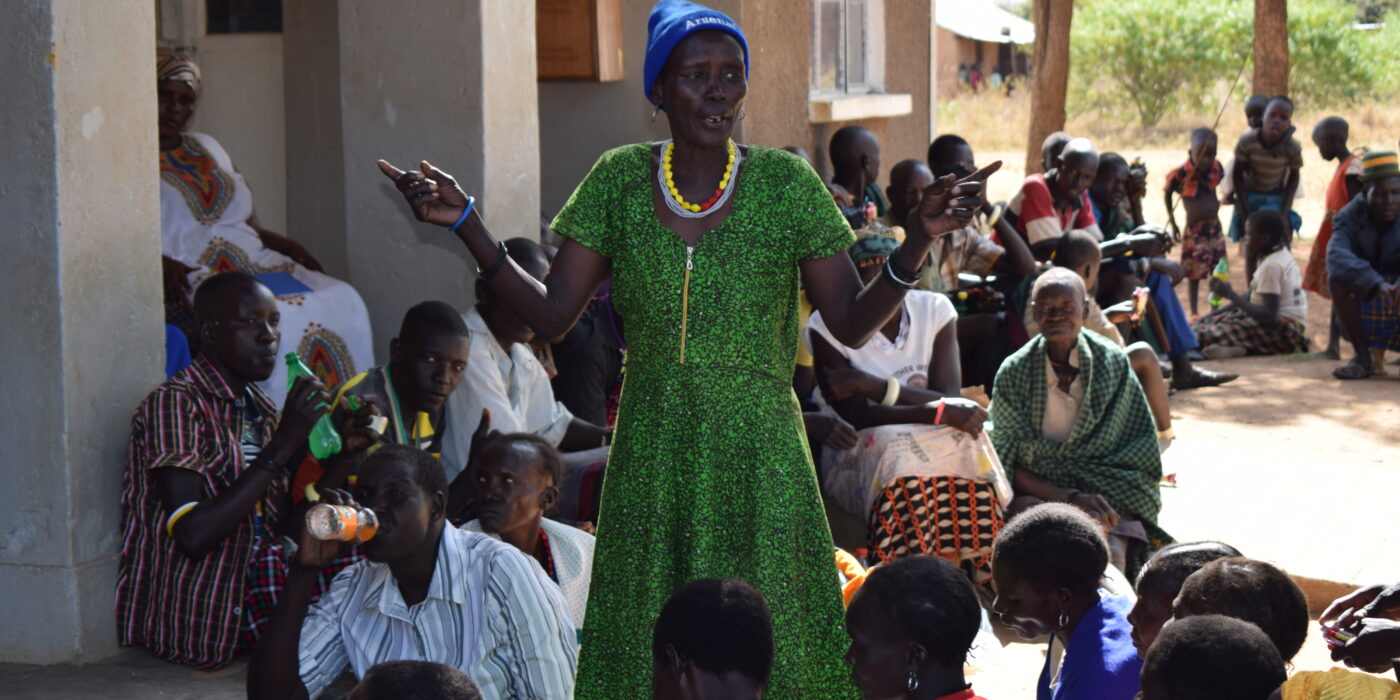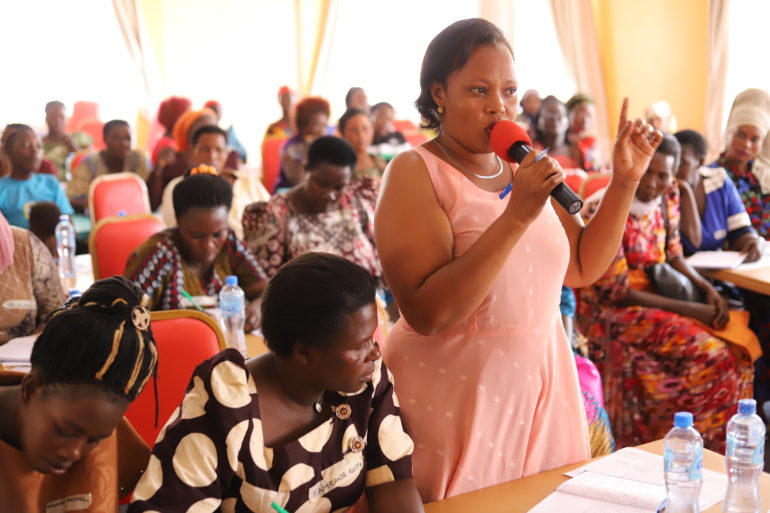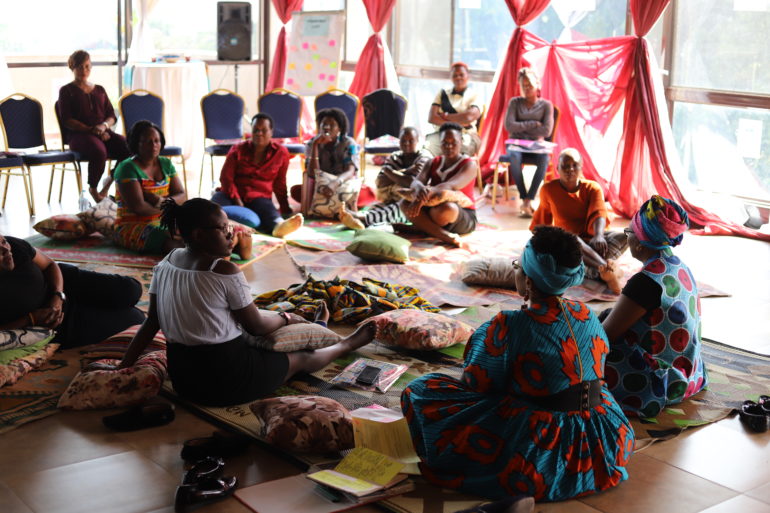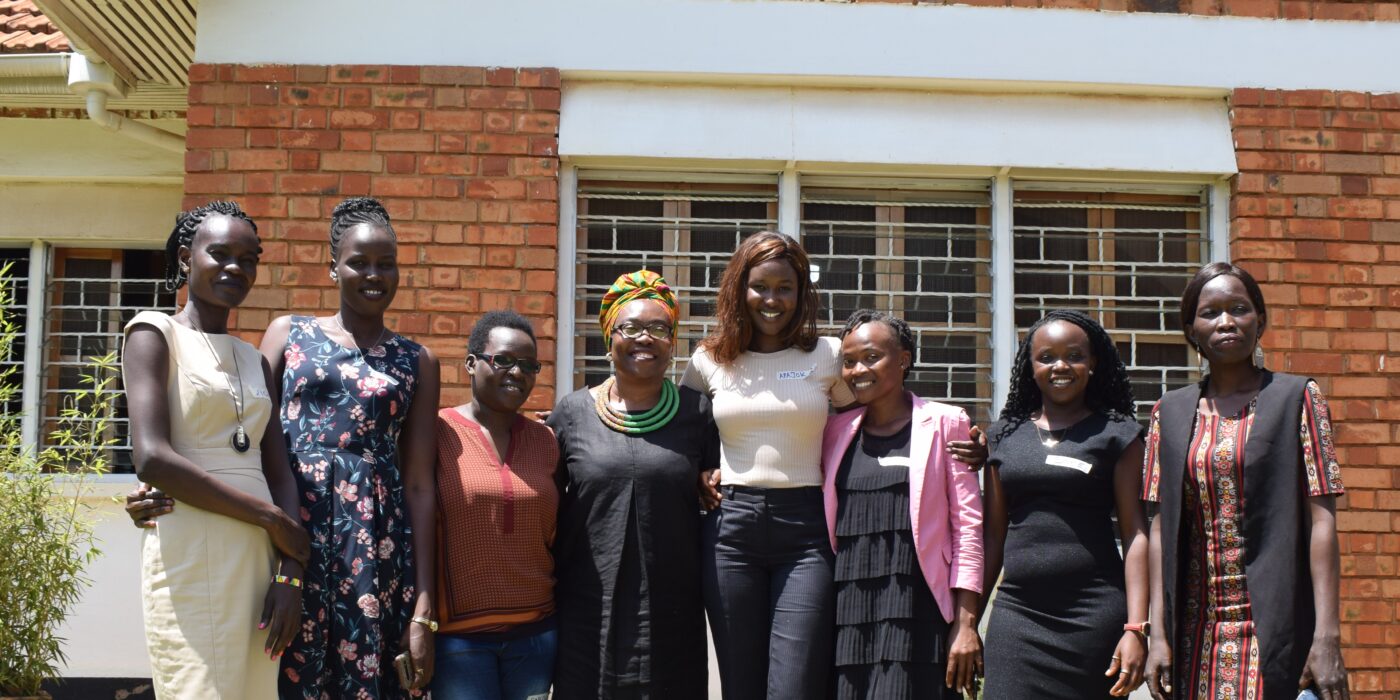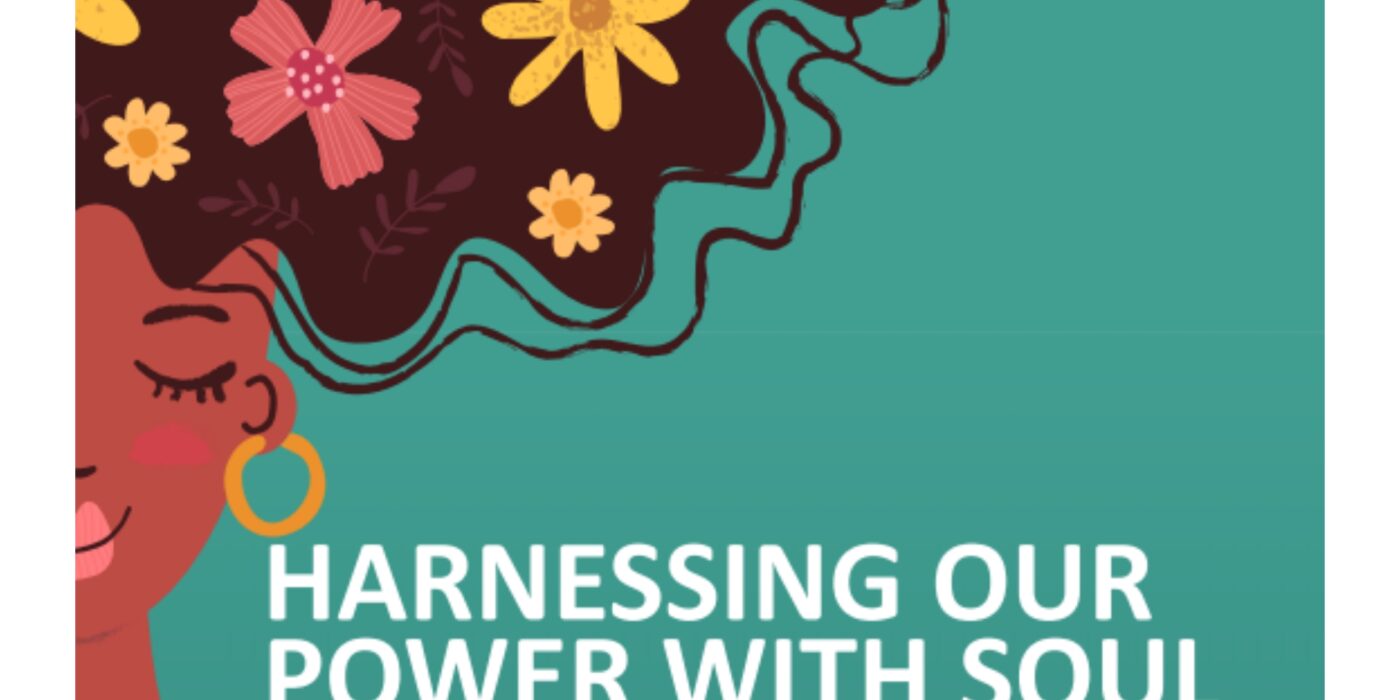African Women Leaders Network (AWLN) Launches Ugandan Chapter.
The Peace Centre was part of the African Women Leaders Network Ugandan Chapter (AWLN) launch, This event took place on 28th February 2020 at Sheraton Hotel, Kampala under the theme “Widening our Space in Leadership“. The launch brought together over 400 women leaders across the spectrum from government, private sector, academia, civil society and rural areas.
The African Women Leaders Network is a ground breaking movement of African women leaders that seek to enhance the leadership of African women in the transformation of the continent in line with Africa Agenda 2063 and the Global Sustainable Development agenda 2030.
The network will serve as a continental platform to galvanize women’s leadership towards lasting peace and development in all sectors and at all levels, building on and working with existing women networks. It seeks to increase women’s participation in decision making through peer learning and mentoring, enhanced solidarity, advocacy and capacity building among other strategies.

Honorable Rebecca Alitwala Kadaga the Speaker of the Parliament of Uganda launched the Network in Uganda
The Ugandan Chapter was launched by Honorable Rebecca Alitwala Kadaga the Speaker of the Parliament of Uganda who noted her belief that AWLN will help to mobilize women across all sectors to strengthen the reins that women hold for the transformation of our continent. The launch was also supported by various government institutions and women leaders like Ministry of Gender, labour and social development, Dr. Elizabeth Mary Okello Founder and Chair of Kenya Women Finance Trust, Ms Janet Bugembe; Associate Prof Josephine Ahikire of Makerere University and many others.
The event was also a space for various conversations which included panel discussions. One which was moderated by our very own Executive Director, Helen Kezie-Nwoha. The discussion was on women’s leadership; perspective, challenges and way forward in regards to the civil society sector, academia/research, including young women leaders perspectives. The discussion highlighted the need for transformation to be by choice and not by chance and encouraging women to use their sphere of influence to help someone become the best version of themselves. “It could be a small drop in the ocean but it’s the drop that makes the ocean full.”

The Executive Director Uganda Women’s Network, Ms. Rita Hope Aciro, addressed the challenges faced by women including social structure with 80% of people thinking men make better leaders and the negative portrayal of women in the media. Women, children and people with disabilities are still facing discrimination she said. Ms. Aciro reiterated that the platform is a collective action towards addressing the barriers that have affected women in leadership since time immemorial.
“Women around the world have been affected by leadership, economically, politically and socially. This is the reason why we are calling for collective action as opposed to individualism. Together we look up to planet 50/50 as women of Africa,” Rita Hope Aciro.
“Mentorship is a day to day effort and something we are committed to doing; stop nagging, support women and girls in rural areas. We need to hold ourselves accountable and continue engaging to bring about positive change,” Rita added as she concluded her remarks.
The UN Women Deputy Country Representative to Uganda, Ms. Adekemi Ndieli also underscored the significance of the platform, to bring together women from all walks of life who are passionate about leadership. “We are all aware of the challenges facing women in Uganda and globally. As we embark on this great journey, we must pledge that no one will be left behind. This is the time to arise to action and we can only do it together.” With support from the office of the African Union Special Envoy on Women, Peace and Security and the Federal Government of Germany, Adekemi pledged continued support of UN Women in empowering AWLN.

